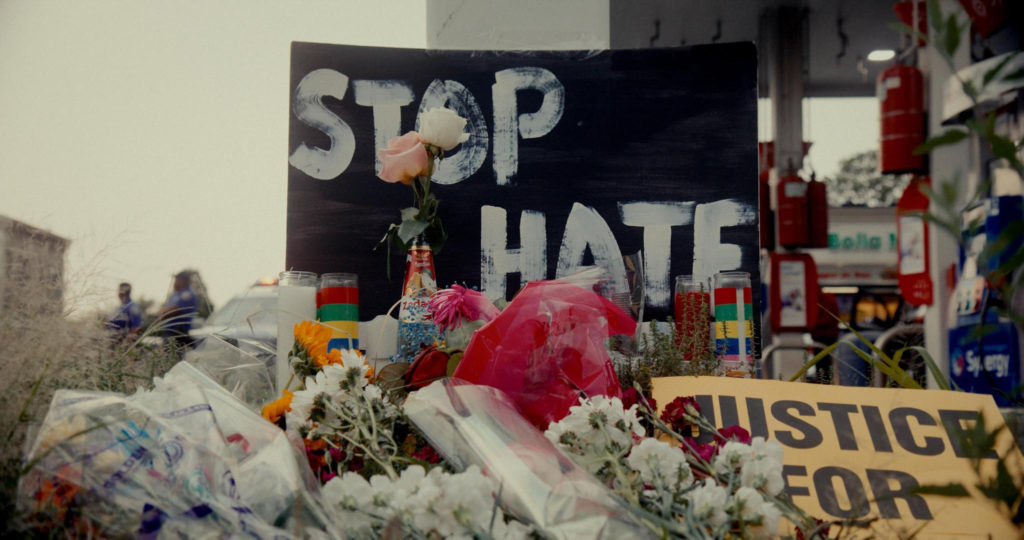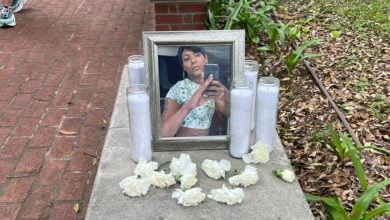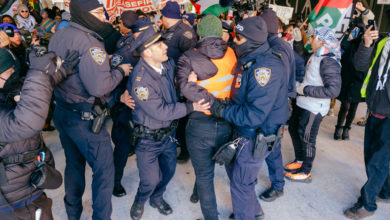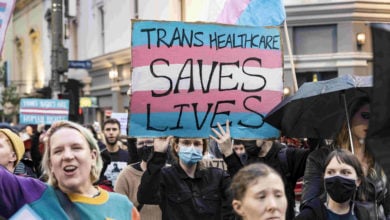Photo: Attendees at O’Shae Sibley’s vigil. Credit: Amanda Yee
On Aug. 3, members of the ANSWER Coalition and the Party for Socialism and Liberation held a speak out and vigil demanding justice for O’Shae Sibley in front of the Brooklyn Mobil gas station where he was killed in a homophobic attack that past weekend.
Sibley, a 28-year-old gay Black man and professional dancer, was fatally stabbed on July 29 at the station on the way home from a day at the beach with his friends. While dancing and voguing to a Beyoncé song waiting for their tank to fill, another group of young men began shouting homophobic slurs at them. The confrontation escalated, and a teenager in the group stabbed Sibley. Sibley was rushed to the hospital, where he was pronounced dead later that evening.
On Aug. 4, the day after the speak out, the 17-year-old who killed Sibley turned himself in to police.
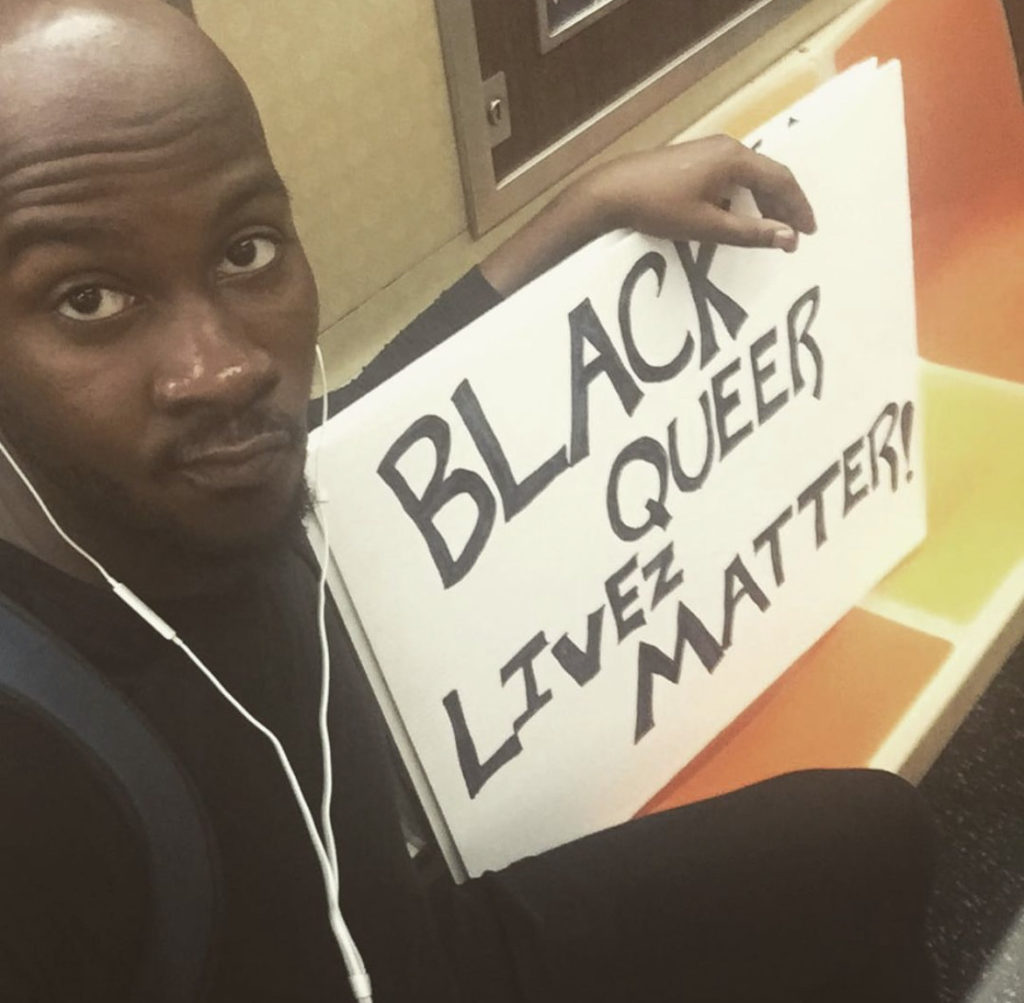
‘If it’s not racist vigilantes killing us, it’s the state killing us’
Speakers at the vigil maintained that the wave of anti-LGBTQ legislation sweeping the country was directly to blame for Sibley’s death.
“I don’t even believe it was just the 17-year-old [that was responsible],” said Wendell, a friend of Sibley’s. “It’s an oppressive system that’s really organized people to think this way.”
In fact, over 500 bills targeting LGBTQ people have been introduced across the United States this year alone, often involving restrictions on gender-affirming health care and identification. Florida Governor Ron DeSantis, in particular, has made a name for himself pushing exactly this type of bigotry. Among other things, Desantis has expanded the state’s “Don’t Say Gay” law, which prohibits classroom instruction on sexual orientation or gender identity, limited gender-affirming care for trans youth, attempted to ban drag performances in the state, and signed a bill prohibiting the use of preferred pronouns in public schools.
And in July, the Supreme Court effectively made LGBTQ discrimination legal in the 303 Creative LLC v. Elenis case, where it ruled in favor of a Christian website designer who refused to build websites for same-sex couples on religious grounds. This ruling opens the door for businesses to turn away customers based sexual orientation.
Alongside this assault on basic rights, physical attacks on the queer community are also on the rise. According to UCLA’s Williams Institute, LGBTQ people are four times more likely to be victims of violent attacks than non-LGBTQ people. This culminated last November with the Colorado Springs massacre, in which a mass shooter targeted Club Q, a nightclub that was a haven for the queer community. In total, five people were killed and 25 injured.
On top of the hateful rhetoric and bigoted legislation targeting their community, queer and trans youth — in particular LGBTQ youth of color — also face higher risk of homelessness and incarceration. LGBTQ people also suffer higher levels of poverty overall.
“If it’s not racist vigilantes killing us, it’s the state killing us,” said Vincent Tsai, a member of the PSL. “Whether it’s through the police force, whether it’s them kicking us out of our homes, evicting us, whether it’s us losing our jobs. I’m here because O’Shae is just a symbol of what we’re dealing with right now. We’re losing good people because of this system.”
‘We’re not done until this system is done’
But despite this tragedy, organizers made clear that the way to honor Sibley was to continue fighting.
“We have a duty. We have to continue organizing. Every blow, every hit, every policy, every intimidation tactic, every eviction notice, every layoff is this system’s way of making sure we stay down,” stated Kerbie Joseph, an organizer with ANSWER. “We gotta keep fighting. We’re not done until this system is done.”
